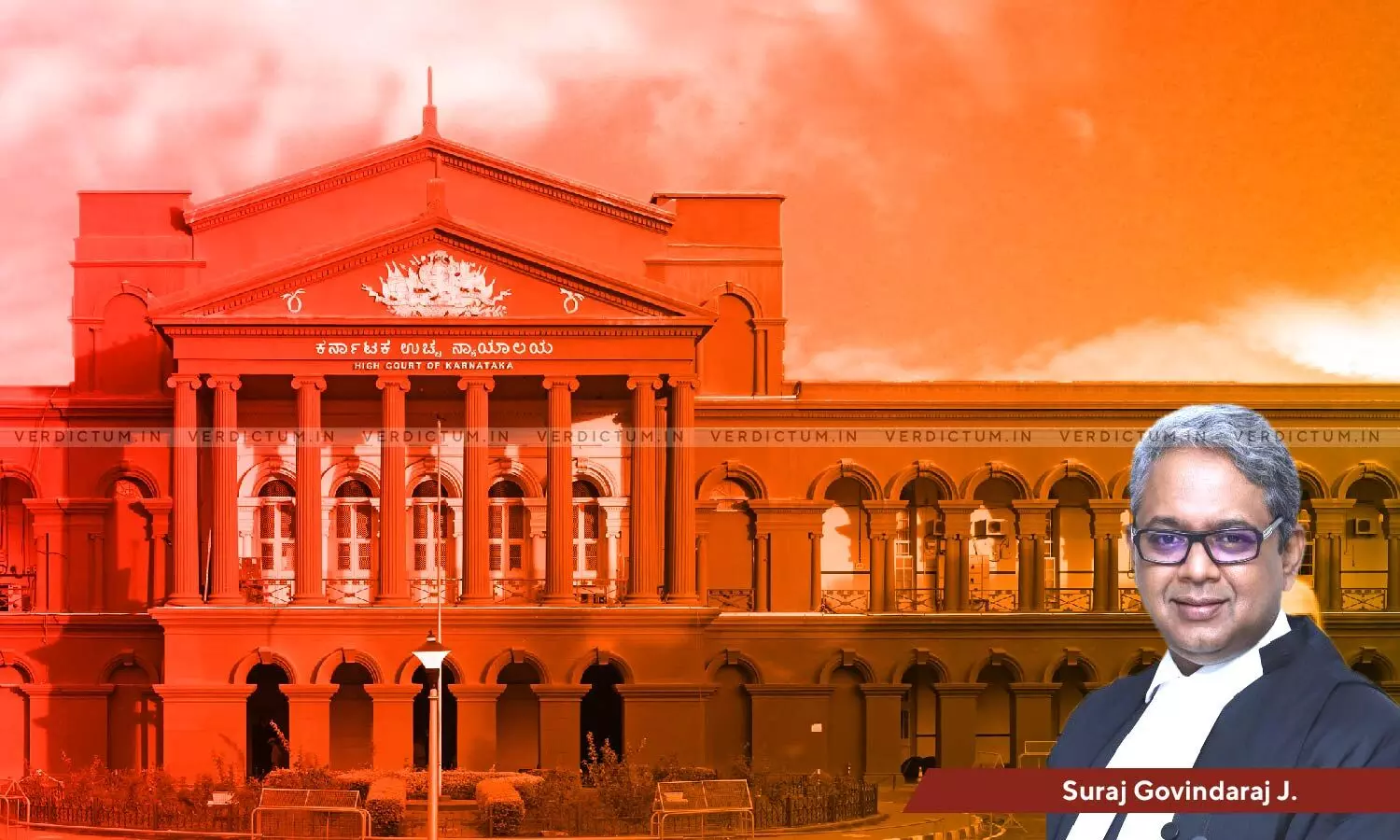
Only A Person Marrying During Subsistence Of Earlier Marriage Can Be Prosecuted For Bigamy U/S. 494 IPC: Karnataka HC Quashes Criminal Proceedings Against Relatives
 |
|The Karnataka High Court held that only husband and wife marrying for second time during the subsistence of earlier marriage and lifetime of the earlier spouse can be prosecuted under Section 494 of the Indian Penal Code (IPC) that punishes ‘bigamy’.
The Court held thus in a criminal petition filed by the family members of the second wife seeking to quash the proceedings for the offences under Sections 420 and 494 of IPC, pending before the Additional Civil Judge and JMFC (Judicial Magistrate First Class).
A Single Bench of Justice Suraj Govindaraj observed, “In that view of the matter, I am of the considered opinion that in terms of Section 494 of IPC as is clear from the mere reading of the said provision, it is only the husband and wife who marries for the second time during the subsistence of an earlier marriage and the life time of the earlier spouse who can be prosecuted and not the petitioners herein.”
Advocate Praveen C. appeared on behalf of the petitioners while Advocate Jagruth appeared on behalf of the respondent.
In this case, the respondent/complainant (first wife) had filed a private complaint before the JMFC, Chitradurga against her husband, his second wife, friend, mother father, and sister. It was alleged that the complainant was the first wife and during the subsistence of her marriage, his husband married another woman and hence, committed an offence.
The accused nos. 3 to 6 were made parties to the proceedings on the ground that they participated in the marriage ceremony of the complainant and accused nos. 1 and 2, knowing fully well of the subsistence of marriage between the complainant and her husband. Therefore, the petitioners (family members of the husband) were before the Court seeking for the reliefs.
The High Court after hearing the contentions of the counsel noted, “A perusal of Section 494 of IPC would indicate that whoever, having a husband or wife living, marries during the life of such husband or wife shall be punished with imprisonment of either description for a term which may extend for seven years. Though there are certain exceptions which have been provided those exceptions would not be attracted in the present case.”
The Court said that what is important for the court to consider is that in terms of Section 494 of IPC it is only the person who marries during the subsistence and the life time of the earlier spouse and the earlier marriage could be prosecuted and punished for the offences punishable under Section 494 of IPC.
“The said provision does not even contemplate the person to whom the husband or wife has married to be prosecuted under Section 494 of IPC. Let alone the father, mother and sister who had participated in or attended the wedding. The only allegation made in the complaint at "paragraph 7" is that accused Nos.3 to 6 have knowledge of the marriage of accused Nos.1 and 2 is illegal and despite which they have participated. There is no averment made therein that they were aware of the subsisting marriage between the complainant and accused No.1 or further, there is no allegation made as regards the intention on part of accused Nos.3 to 6 having involved themselves in a offence punishable under Section 494 of IPC or felicitated or abated the said offence”, it added.
Accordingly, the High Court allowed the petition and quashed the proceedings against the family members.
Cause Title- Thimmappa & Ors. v. Bharathi (Neutral Citation: 2024:KHC:10412)
Appearance:
Petitioners: Advocate Praveen C
Respondent: Advocates Jagruth and Rahul Rai K.